THE vigilante action drama, Shahenshah, generated a tidal wave of excitement when it was released on February 12, 1988.
Amitabh Bachchan’s return to the big screen after more than two years away from it gave him another career-defining role and was the secondhighest grossing movie of that year. Tinnu Anand’s second directorial outing with the megastar presented fans with a compelling narrative about a cop with a vigilante alter ego, taking the law into his own hands.
From his unique look to an unforgettable piece of dialogue, Shahenshah became a cult classic and completes 36 years this month. Eastern Eye marked the occasion by presenting 21 fun facts connected to the popular entertainer.
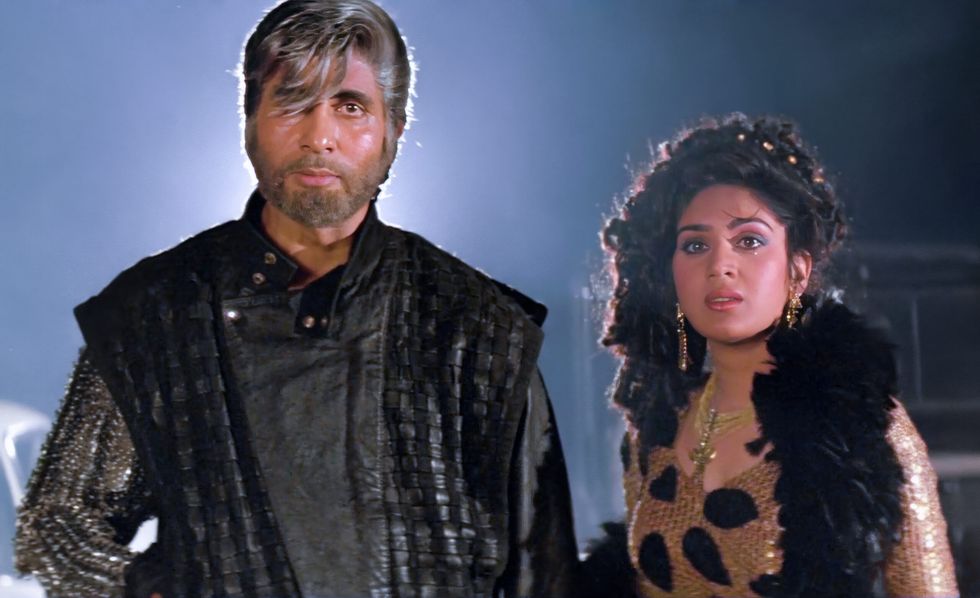
- Shahenshah was director Tinnu Anand’s second film with Amitabh Bachchan. Their first was the 1981 smash hit, Kaalia. Anand later made the underrated Main Azaad Hoon (1989) and Major Saab (1998) with Bachchan.
- Anand revealed that he had been tipped off that Bachchan had the habit of touching his forehead if he wasn’t interested in a script before declining a film. However, each time Anand narrated a film to him, his hand went nowhere near his face.
- Bachchan had been signed by Anand in 1983, but shooting got delayed due to the actor getting seriously injured on the sets of Coolie and then joining politics. Anand found himself in financial difficulties, with creditors knocking at his door. Bachchan reassured him that he would complete the film.
- Anand referred to Bachchan as a lion in an interview, saying that lions are fed meat, not grass, and that the fierce actor should be given roles to suit his stature.
Bachchan with Amrish Puri
- Jackie Shroff was considered for the lead had Bachchan refused it after quitting politics.
- The story was written by the lead star’s wife, Jaya Bachchan, who was also credited in the titles.
- Dimple Kapadia was initially signed for the film, but was later replaced by Meenakshi Seshadari.
- Aftab Shivdasani played the role of Bachchan's character as a youth in the movie and later in Insaniyat (1994) too. Meanwhile, Rohini Hattangadi, despite being over a decade younger than Bachchan, played his mother, as she did later in Agneepath (1990) as well.
- Supriya Pathak, who played Bachchan’s sister in Shahenshah, played his wife in Sarkar (2005).
- Anand’s father, Inder Raj Anand, wrote the film’s 23 pages of dialogue for its climactic scene on his deathbed. Despite being hospitalised and on oxygen, Anand senior assured his son that he would not let him down and completed the work as he breathed his last.
- Anand felt cheated when an identical costume worn by the Shahenshah character was used by Jeetendra in Aag Aur Shola (1986) and he vowed never to hire that designer again. That didn’t stop the costume from becoming one of Bachchan’s most iconic looks. The steel arm alone weighed at least 14kg.
Bachchan with Meenakshi
- As in Kaalia (1981), Bachchan’s opening scene featured him making a comical entry, describing a feared villain named Mukhtar Singh.
- A scene where Shahenshah is confronted by the character played by Pran was edited out of the final cut due to the film’s length. This can be seen in the publicity stills.
- Mohammed Aziz sang for Bachchan in Shahenshah, as he did for him in Mard (1985), Aakhree Raasta (1986), Ganga Jamuna Saraswati (1988), Khuda Gawah (1992) and their tribute to Mohammed Rafi in Kroadh (1990).
- The film’s song, Andheri Raaton Mein, became a cult anthem for Bachchan and would often be played when he appeared in public.
- Shahenshah was the most expensive film of the late 1980s and was sold for the second-highest price for distribution after Shaan (1980).
Bachchan as the police officer Vijay Kumar
- Opposing political parties tried to stop the film’s release, with over 250 cinemas being guarded by armed policemen. Political leader Balasaheb Thackeray’s faith in Bachchan ensured the film’s safe release.
- In its opening week, fans queued up for a mile to buy tickets. More than 20,000 moviegoers started buying tickets at 9am for the first show at Shiela cinema in Delhi, which was unheard of at the time. Saajan cinema in Varanasi held an extra show at 7am on the first Sunday after it was released, which was immediately sold out.
- Bachchan earned a Filmfare award nomination for best actor.
- The pirated video cassettes of the film were also in high demand for up to three times the market price before release.
- Big B has delivered many famous pieces of dialogue in his films. One of the most famous is, “Rishtey mein toh hum tumhaare baap hote hain, naam hain Shahenshah”, which is still popular today. It is one of many iconic moments in a movie that remains a cult classic.
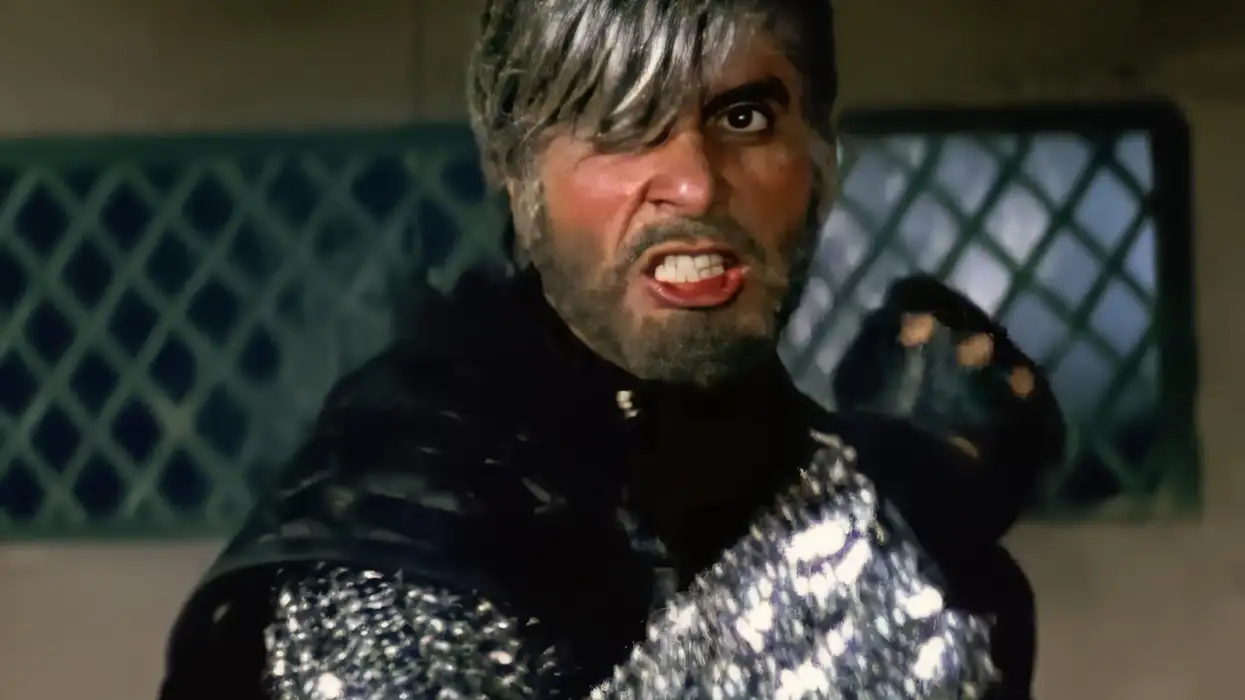
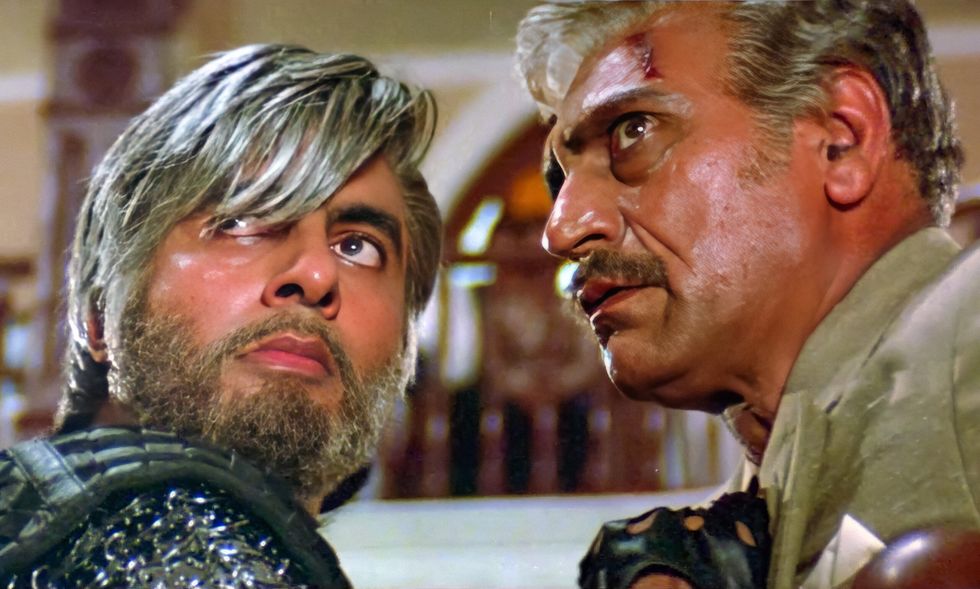 Bachchan with Amrish Puri
Bachchan with Amrish Puri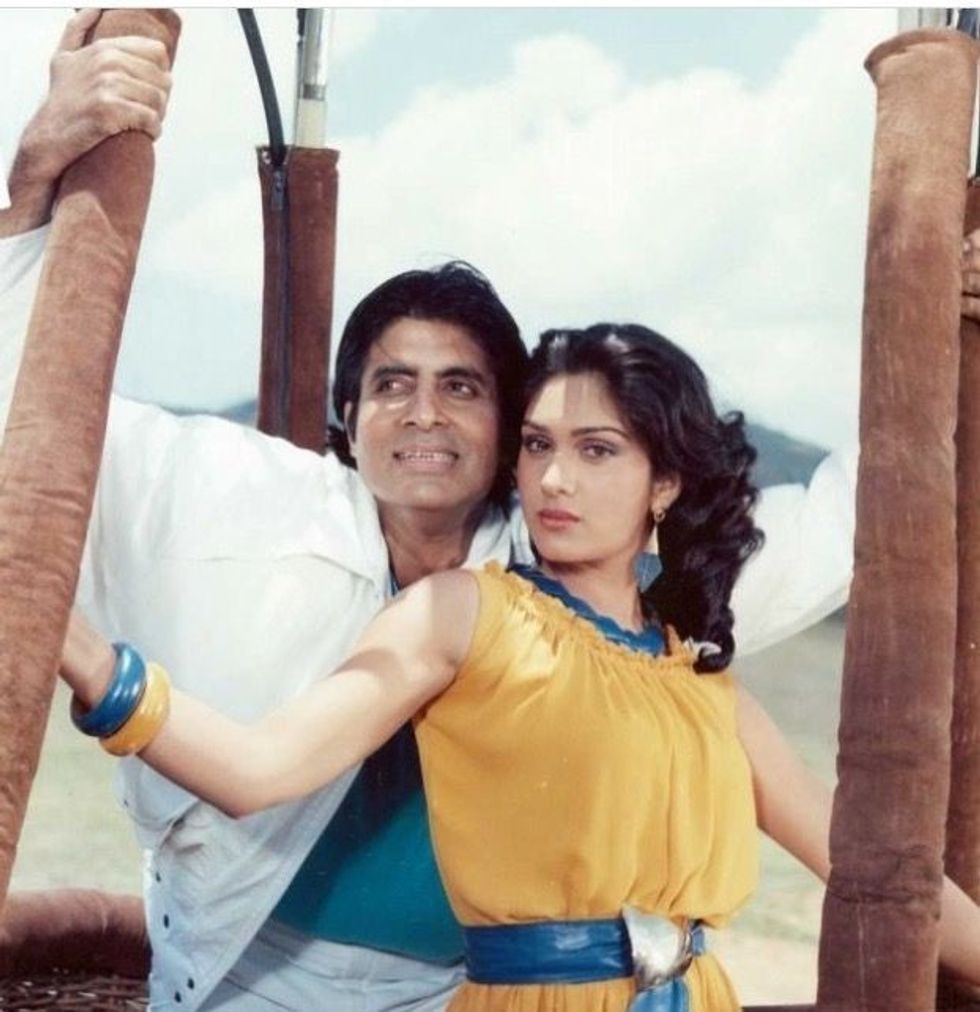 Bachchan with Meenakshi
Bachchan with Meenakshi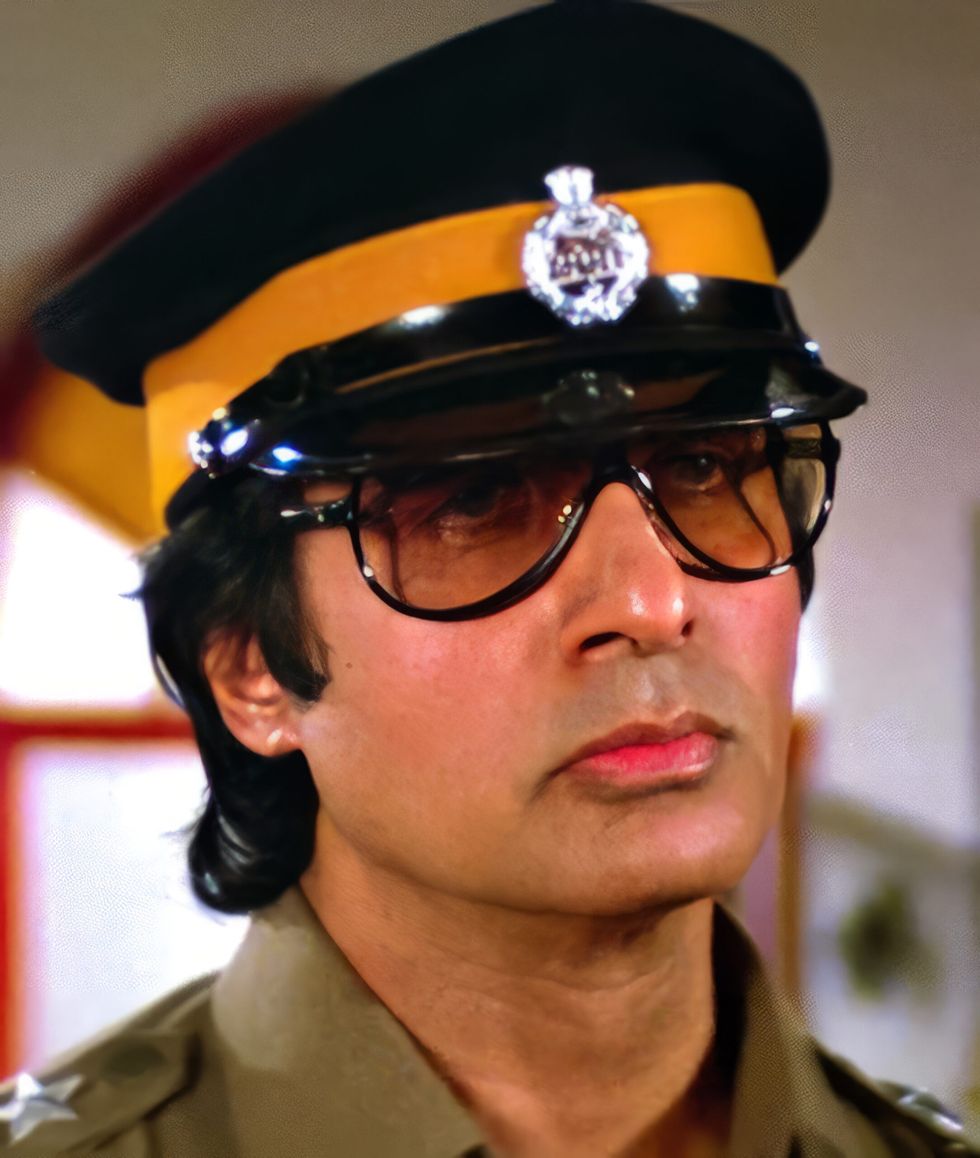 Bachchan as the police officer Vijay Kumar
Bachchan as the police officer Vijay Kumar










